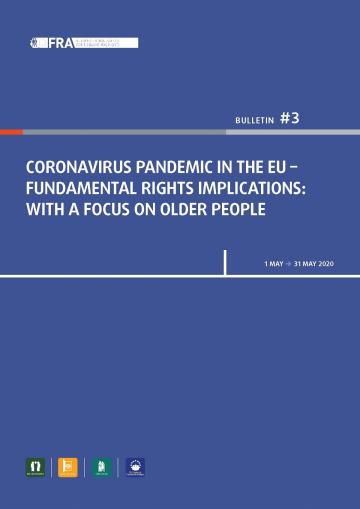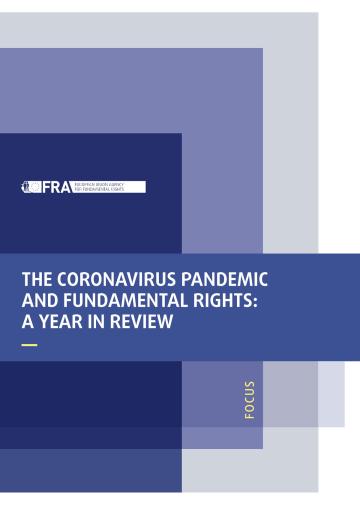The impact of the COVID-19 pandemic touches nearly every aspect of daily life in the Europea Union (EU). As infection and death rates continued to fall in May, governments took additional steps to lift the restrictive measures imposed at the start of the pandemic (for developments from 1 February–30 April 2020 see FRA Bulletin #1 and FRA Bulletin #2). Yet, the reopening of more sectors of the economy, and greater freedom of movement and social interaction provided a first insight into the longer-term impact of the pandemic. It also revealed the prolonged adaptations to our economies and societies necessary to prevent renewed infections. The ongoing restrictions of the ‘new normal’ pose significant challenges to the civil, political, social, cultural and economic rights of everyone in the EU.
This report outlines some of the measures EU Member States have put in place to protect public health during the Coronavirus pandemic and examines aspects of the pandemic’s impact on older people. It highlights how the different measures may affect fundamental rights. Where specific articles are mentioned in the report, these refer to the Charter of Fundamental Rights of the European Union, as a proxy also for the many other human rights standards that apply at national level. The report covers the period 1 – 31 May 2020 and focuses on four interrelated issues:
- states of emergency or equivalent measures;
- measures to contain the spread of COVID-19 and mitigate its impact on social life, education, work, the justice system and travel to and within the EU;
- the impact of the virus and efforts to limit its spread on particular groups in society, namely persons with disabilities, detainees, homeless people and victims of domestic violence;
- the impact of the pandemic on the fundamental rights of older persons – as a specific focus.
The combination of the most widespread restrictions on daily life experienced in peacetime in modern Europe affect everyone living in the EU, albeit in different ways. This has implications for the enjoyment across our societies of nearly all the fundamental rights enshrined in the Charter. The following paragraphs outline key findings from FRA’s data collection across the 27 EU Member States, illustrating the impact of the virus and the measures to contain it.
FRA will continue to examine the impact on fundamental rights of the virus and measures to contain it in its next Bulletin in July 2020.











